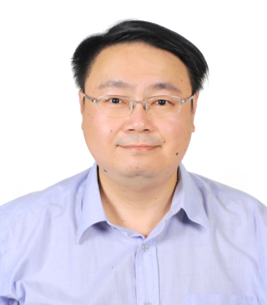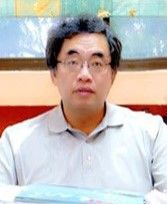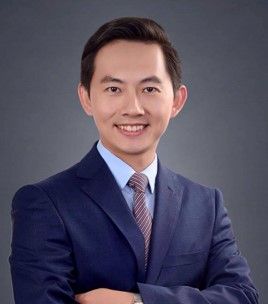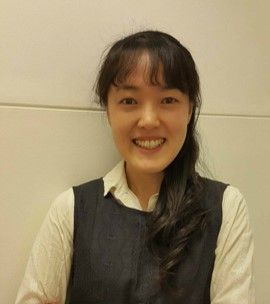技術諮詢及合作團隊

Prof Robert Campbell
Department of Chemistry, University of Alberta, Canada
Dr. Robert E. Campbell is a Professor in the Department of Chemistry, University of Alberta (2003 - present). He earned his Ph.D. in Chemistry with Martin Tanner at the University of British Columbia in 2000 and undertook postdoctoral research at the University of California San Diego in the lab of the late Roger Y. Tsien (2008 Nobel Prize). His research is focussed on the development of genetically encoded Ca2+ indicators and optogenetic tools for cell biology applications. His contributions have been recognized with numerous awards including the Teva Canada Limited Biological and Medicinal Chemistry Lectureship Award (2016), the Rutherford Memorial Medal in Chemistry from the Royal Society of Canada (2015), and a Canada Research Chair (2004-2014).
+read more

Prof Chia-Ning Shen
Deputy Director of Administration, Genomics Research Center, Academia Sinica
l Deputy Director of Administration, Genomics Research Center, Academia Sinica, Taipei, Taiwan
l Adjunct Associate Professor, Institute of Clinical Medicine, Taipei Medical University, Taiwan
Dr. Chia-Ning Shen obtained his Ph.D in 2002 from Developmental Biology Program, University of Bath, United Kingdom and then had his postdoctoral training at the Center of Regenerative Medicine, University of Bath, United Kingdom. Since 2004, Dr. Shen joined the Genomics Research Center of Academia Sinica. Dr. Shen is now an Associate Research Fellow and Deputy Director of Genomics Research Center of Academia Sinica. Since 2017, Dr. Shen has been elected to sever as the president of Taiwan Society for Stem Cell Research (TSSCR).
Dr. Shen’s group has been focusing on determining roles of naturally occurring cell reprogramming such as transdifferentiation (metaplasia) in disease progression will also be needed to address. Specifically, Dr. Shen is investigating whether cell fate switches is important for improving our ability to reprogram somatic cells for the purposes of therapeutic transplantation and also for understanding the rules for transdifferentiation (metaplasia) between cell types. Indeed, islet transplantation has been recognized as an efficient therapeutic approach for treating type I diabetes, however, “shortage of donor supply” limited the usage. Currently, Dr. Shen’s group is trying to generate alternative resources to functional beta-cells utilizing reprogramming-based approaches.
+read more
Prof Pi-Tai Chou
Department of Chemistry, National Taiwan University
Expert in photochemistry, electronic structure, and spectroscopy
Honors and Awards:
- NSC Excellent Research Award, 1997-1998, 1999-2000, 2001-2002.
- National Taiwan University Chair Professor, 2001.
- Scholar Award in Science, Ministry of Education, 2003.
- "Ho Chin Tui" Outstanding Scholar Award, 2006.
- Distinguished NSC Professor, 2007.
- National Lecturer Prize, 2008-2011.
- National Science Council Award for Outstanding Research Invited Principal Investigator, 2009.
- Fellow of Royal Society of Chemistry, 2009.
- National Taiwan University Chair Professor, 2011.
- Yu-Ziang Hsu Scientific Chair Professor, 2012.
- The Asian and Oceanian Photochemistry Association Award (APA Award), 2012.
- Academic Award, Chinese Chemical Society, 2013.
- National Taiwan University Chair Professor, 2014
- The World Academy of Sciences Prize (TWAS) in Chemistry, 2015
- National Taiwan University Chair Professor, 2017.

Jui-Cheng Chen, MD, PhD
Associate Professor, China Medical University
Jui-Cheng Chen, MD, PhD, is a neurologist of the China Medical University Hospital, executive secretary of Brain Disease Research Center and trustee of Taiwan Neurophysiology Society. Dr. Chen directs a multidisciplinary research program focused on the neurological diseases, such as Parkinson’s disease and Alzheimer’s disease by non-invasive recording and stimulation. Dr. Chen is interested in how these regulatory mechanisms contribute to both neurophysiological and pathological motility, and in leveraging this information for the development of therapeutics that target neurodegenerative diseases. Work of Dr. Chen has been supported by several grants from the dystonia UK foundation, Ministry of Science Technology, Taiwan, and DAAD, Germany.
Dr. Chen earned his bachelor’s degree in Medicine from the China Medical University and his Ph.D. in Neurology in University College London. After completing postdoctoral visiting at Oxford University in clinical neuroscience, he joined China Medical University.
+read more

Prof De-Ming Yang
Department of medical research, Taipei Veterans General Hospital

Yi-Chun Yeh, PhD
Postdoctoral Research Fellow, Department of Physiology, Anatomy and Genomics, University of Oxford
+read more
